How to Choose the Top Cities to Live and Move Abroad
Know Essential Needs, Explore Possibilities, and Embrace Your Lifestyle
By Volker Poelzl
Updated 10/2/2023 by Transitions Abroad
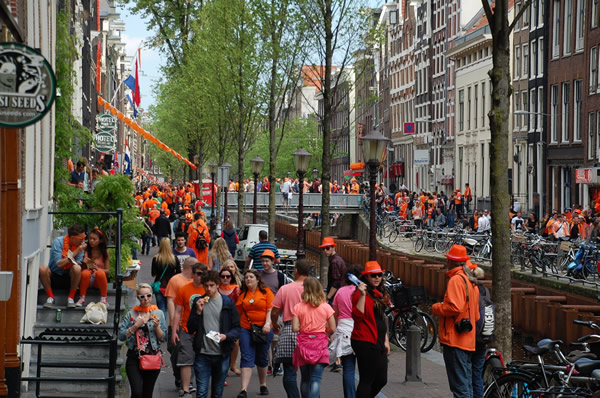 |
| If you have a chance to live in Amsterdam, you might want to give it a go. |
What transforms a city into a magnetic haven for globetrotters often extends beyond its economic prowess. In the narratives written by expatriates who've ventured and shared their stories, it becomes evident that the fusion of factors transforming a metropolis into a dream destination is far richer than mere financial might.
Imagine a symphony of work prospects harmonizing with a vibrant business ecosystem, all set against the backdrop of an extraordinary quality of daily life inflused with history, art, or atmosphere. Now, sprinkle in that elusive, subjective "feel" that touches your heart. It's this blend that gives birth to the most coveted of destinations.
So, join us on a journey as we explore the qualities that may dazzle your mind when choosing your next destination. And, as an added bonus, we'll unveil our handpicked selection of the very best among cities, each with its unique charm and allure.
Subjective and Objective
Quality of Life
For many expats, what they perceive as "quality of life" is essential and encompasses everything that makes living in a city enjoyable — from the often-important cost of living, food, housing, transportation, arts and culture, leisure time activities, educational opportunities, climate, geographical location, health care, and safety, etc. What makes a city great depends not only on your interests and way of living but also on your age, family status, and professional and educational goals. What makes a city great can change over time, just as some move from city to city and from place to place in their homeland. In sum, we have observed over the years that for many people, choices about where to live are a matter of the perception of subjective quality over "objective" measurable quantity.
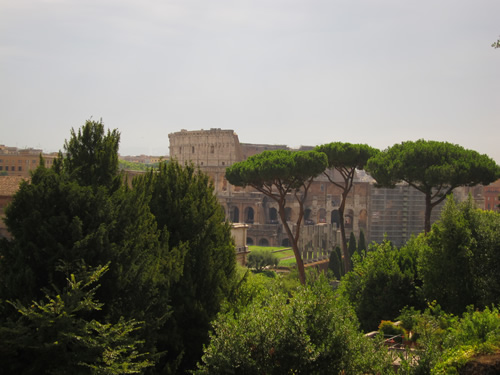 |
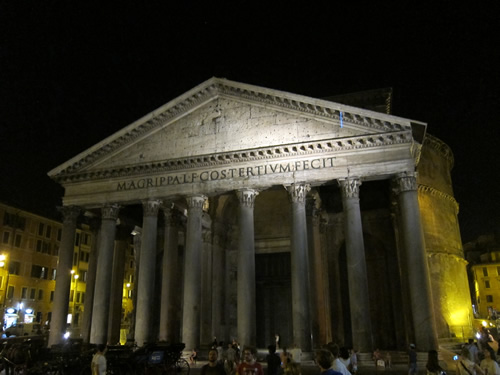 |
| Day or night, you are always aware that you
are walking through history in Rome, one of the many charms of a sensual and
mysterious city. |
Find Yourself a Great City to Live
In
There are no absolute objective criteria or measurements to determine if a city is great. While it can be helpful to follow human development indexes of prosperity and infrastructure development, such as referenced below, finding your great city to live in is a subjective choice involving your taste in combination with your unique situation and options. I found Rio de Janeiro noisy, chaotic, and congested, but I enjoyed the city's vibrant cultural life. Auckland, New Zealand, on the other hand, lacked the excitement of Rio de Janeiro, but the safe and quiet city is often mentioned in commercial media as one of the top ten most livable cities in the world. New York City and San Francisco are genuinely great American cities culturally but unaffordable for the vast majority, living quarters highly cramped for the high cost, and educational options for children are often expensive or hard to find, yet many still flock and remain there for multicultural, aesthetic, and career reasons — for some, there are no comparable alternatives in the U.S.
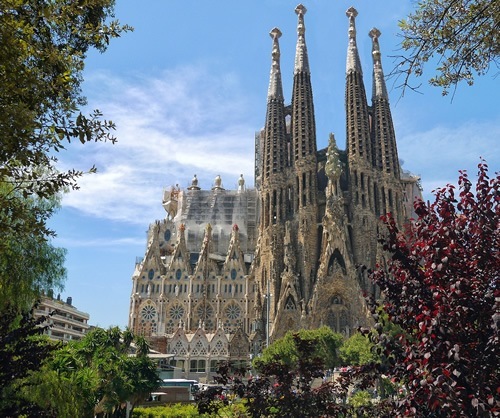 |
| In Barcelona, the genius architect
Gaudi left his unique mark everywhere, but there are
so many other beautiful ancient cathedrals, medieval
streets, and works of art to explore in a great city. |
When preparing your list of favorite cities, it's a good idea to write down qualities that are important to you.
For example, how important is culture
to you, and what aspects?
- Local traditional cuisine or 3-star dining?
- Opera, pop, jazz, rap, or punk rock?
- A city full of parks and greenery?
- Lively street life?
- Booming nightlife? A city that never
sleeps?
- Great food markets?
- Interesting architecture?
- Energetic and forward-thinking, relaxed, or a more romantic feel?
- Clean and orderly or messier and chaotic?
- View
of foreigners by locals, pro, con, or indifferent?
- A place to start or move your family?
Or you may seek a unique admixture of all of the above.
Such qualities will significantly impact your life abroad, so they should be a core consideration in your selection process.
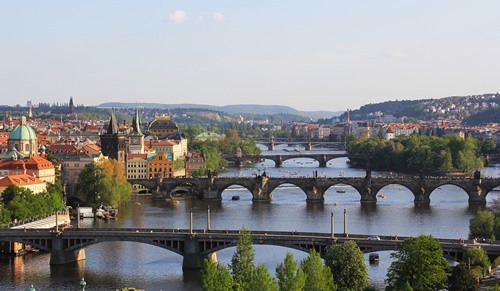 |
| Bridges are just one aspect of Prague's charm. |
Selection Criteria for a Great City to Live In
Here are suggested vital criteria to create a checklist when searching for a great city to move abroad:
- Cost of Living
- Housing
- Food
- Education and Child-Friendliness
- Infrastructure, Transportation
- Leisure and Culture: Movies,
concerts, theater, art, museums, restaurants,
etc.
- Ambiance, atmosphere, beauty,
and historic flair
- Climate
- Exercise
-
Nature and the Outdoors
-
Shopping, Lifestyle
- Health Care
- Safety
- Geographic Location
|
Cost of Living
The most crucial factor that will impact the quality of your life abroad is the cost of living in your chosen city. Unlike international employees who receive cost of living and moving allowances from their companies while working abroad, expats who move overseas must deal with these issues in unknown surroundings and on their own.
Unless you are independently wealthy or have a large retirement fund, your income or available funds will significantly impact a city's livability. If the cost of rent, transportation, utilities, and food exceed your budget, then even the most attractive city will not be a realistic possibility.
For example, Auckland, New Zealand, was affordable because the cost of living was low then, and I had a job that paid my bills. On the other hand, as a student in Rio de Janeiro, I did not earn any money. Brazil's currency was more robust than the dollar then, and eating out and other leisure activities were quite expensive. In New York City — where having money opens up doors to an entirely different experience than living there without — you may still enjoy many aspects of the multicultural life. Still, the day-to-day grind will more likely eventually drain you even relative to all the outstanding characteristics.
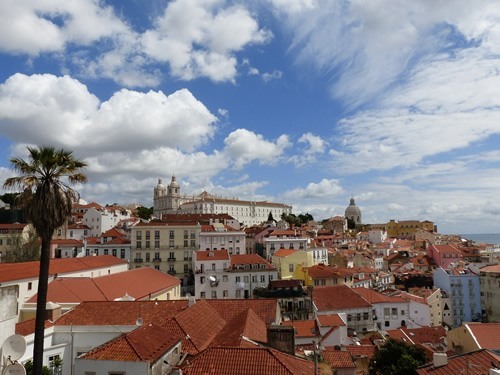 |
| Lisbon seduces with its hillside
neighborhoods and narrow alleys. |
Surveys and Websites
on the Quality and Cost of Living of Cities Abroad
The surveys listed below are often used as guidelines, with others having their own methodologies or sources. We are shocked by the prevalence of cities we find less on the warm side in terms of the local people and climate, but understand there are many factors that go into a selection.
-
Of course, Timeout has its own list of the top 53 cities for 2022, as do Afar, Conde Naste Traveler, CNN Traveler, Forbes, and many more.
-
Numbeo.com is an exciting website since it gathers data into the world’s largest database of user-contributed data about cities and countries. Expatistan.com works fairly similarly and reports that the cost of living in Paris as of 7/2023 is 31% less than in New York!
|
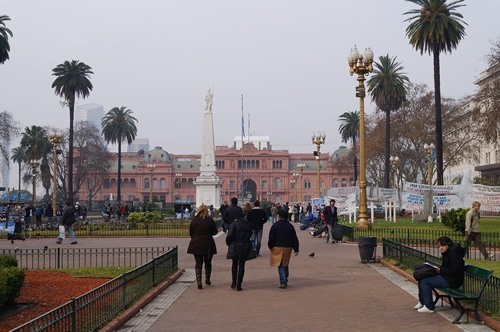 |
|
In many surveys, Buenos Aires is not generally ranked among the "most livable cities" but has an undeniable allure. |
How to Get Started
To begin the process of researching cities where you might wish to relocate, ask yourself to think about the countries you know or those that entice you. It's essential to establish a goal and purpose. What will you be doing there? Study, work, or primarily enjoy life? Are you taking a sabbatical, working on a personal project, performing research, immersing yourself in a foreign culture, or retiring?
Find websites, blogs, news feeds, and expat communities discussing these cities and keep up on current events to get an idea about what to expect, and you can network connections before you go. If your city of choice has disruptive transportation or garbage worker strikes every month, you might instead look for another town nearby. Read as many books, articles, and online reviews about your destination to learn as much as possible about your favorite city before choosing to move. Perhaps most importantly, you should also consider taking at least one fact-finding trip to ensure that your chosen city is what you expect and that you imagine feeling at home there for the long term.
Editor's Choice of the Best Cities to Live Abroad
Our choice of the best cities abroad with over 500,000 inhabitants is not based primarily on economics, jobs, or infrastructure but mainly on the quality of life.
All the cities share a unique flair that invites discovery and inspiration and adds joy to everyday life. What better way
to start your day than to buy a warm crisp baguette, fresh croissants, and a pain au chocolat at a Parisian
bakery every morning, or have a doppio cappuccino at the bar in Rome, nightlife in Barcelona or Madrid, a relaxing stroll or ride along the canals of Amsterdam, or [fill in the blank]? Here are our
favorite large cities outside the U.S. (that
we have visited long-term or lived in ourselves),
presented in alphabetical order:
-
Amsterdam — the
canals, bicycles, coffee houses, and pace make for
very relaxed living, though the cost is not low, though about 30% lower than New York City, like Paris.
- Auckland — combines
the beauty of the Polynesian islands with a Western
standard of living.
-
Barcelona — Barcelona is extremely popular with foreigners, with great coffee houses and architecture, and many international students. Many have underrated Madrid, with the outstanding Prado museum, endless "tapas" bars and restaurants, and a bustling nightlife that makes New York City seem tame.
- Berlin — an excellent option due to its
famous multicultural and artistic character. Munich is a
melting pot of talent and culture from all over
Germany, blended with Bavarian “Gemütlichkeit”
and lots of lager beer.
-
Buenos Aires — the "Paris of South America," great nightlife, street
life, bookshops, coffee houses, and currently not very costly (60% cheaper than New York City).
-
Lisbon — a
picturesque port city with a rich history and
narrow winding alleys where you can lose yourself;
off the beaten path at the Western
edge of Europe and relatively inexpensive.
-
Paris — a
great walking city with sidewalk cafés as far
as the eye can see, booksellers along the Seine
River, endless historical monuments, world-class museums, cheese shops, and
bakeries — does it get any better? Yes, it is expensive, but not as much as many American cities.
- Prague —
here you will find incredible beer, friendly people, not overly expensive, and an old city center worthy of fairy tales.
-
Rome — a
city where you walk through history, can hear
music resonating in Roman ruins or beautiful
cathedrals and churches, experience many unique
neighborhoods such as Trastevere, enjoy great
outdoor nightlife during the summer, with that Italian spontaneity and sensuality. Cost of living is 50% cheaper than New York City, and the editor has spent many summers and years there living very well on little income.
-
Vancouver — this city is the best of the West in Canada in a dramatic setting of mountains, islands, and the Pacific Ocean. Montreal is
a favorite in the East, especially for young people
who enjoy multicultural living, good food, and
a vibrant music scene & nightlife. Toronto is not beautiful, in my view, but a true ethnic melting pot with tons of energy and life.
Of course, there are many
extraordinary cities worldwide, and we could
not include them all in our list, nor have we lived in them all.
|
Volker
Poelzl is a Living Abroad
Contributing Editor for Transitions Abroad.
He has traveled in over 40 countries worldwide
and has lived in 10 of them for study, research,
and work.
|
